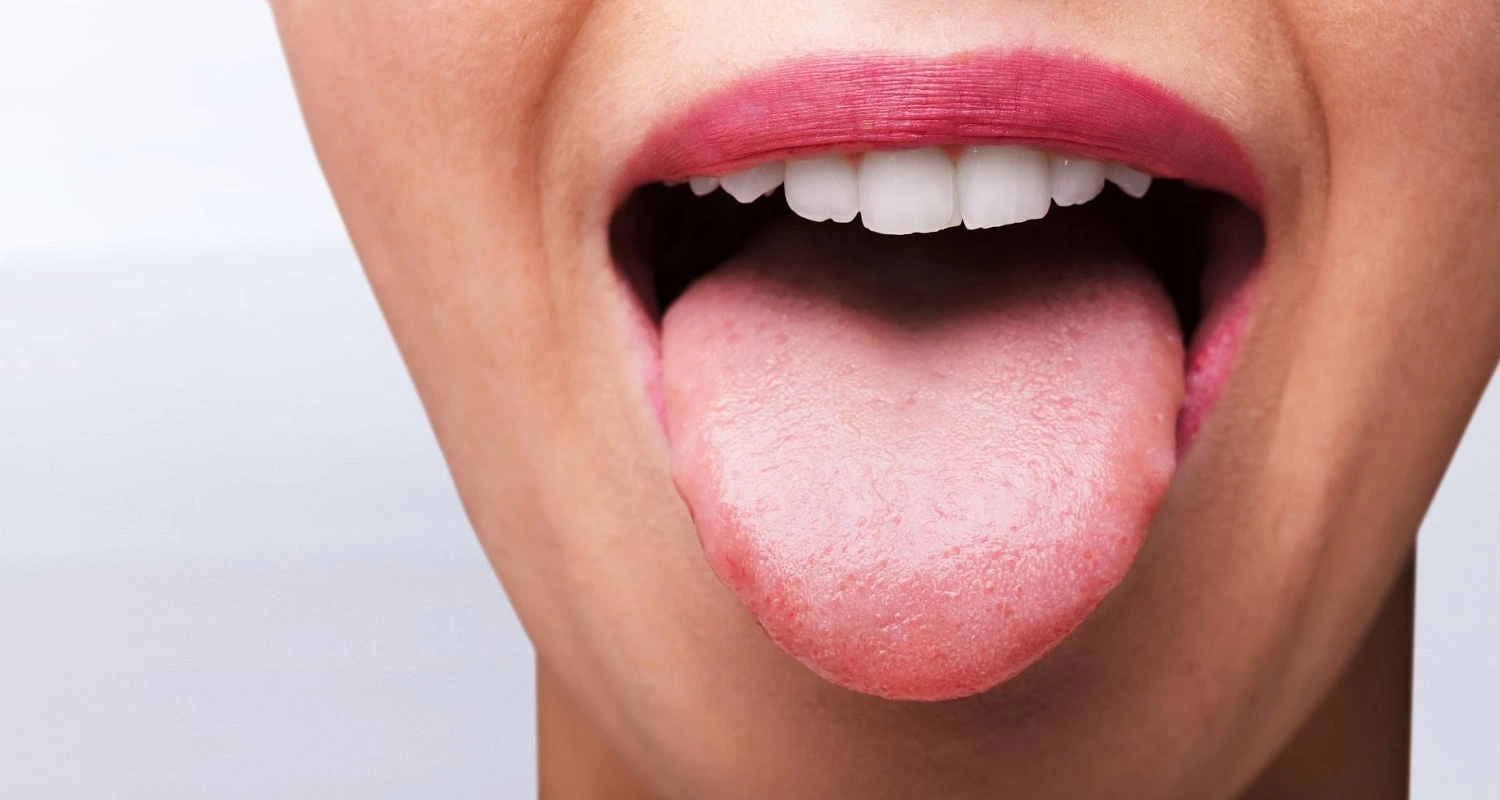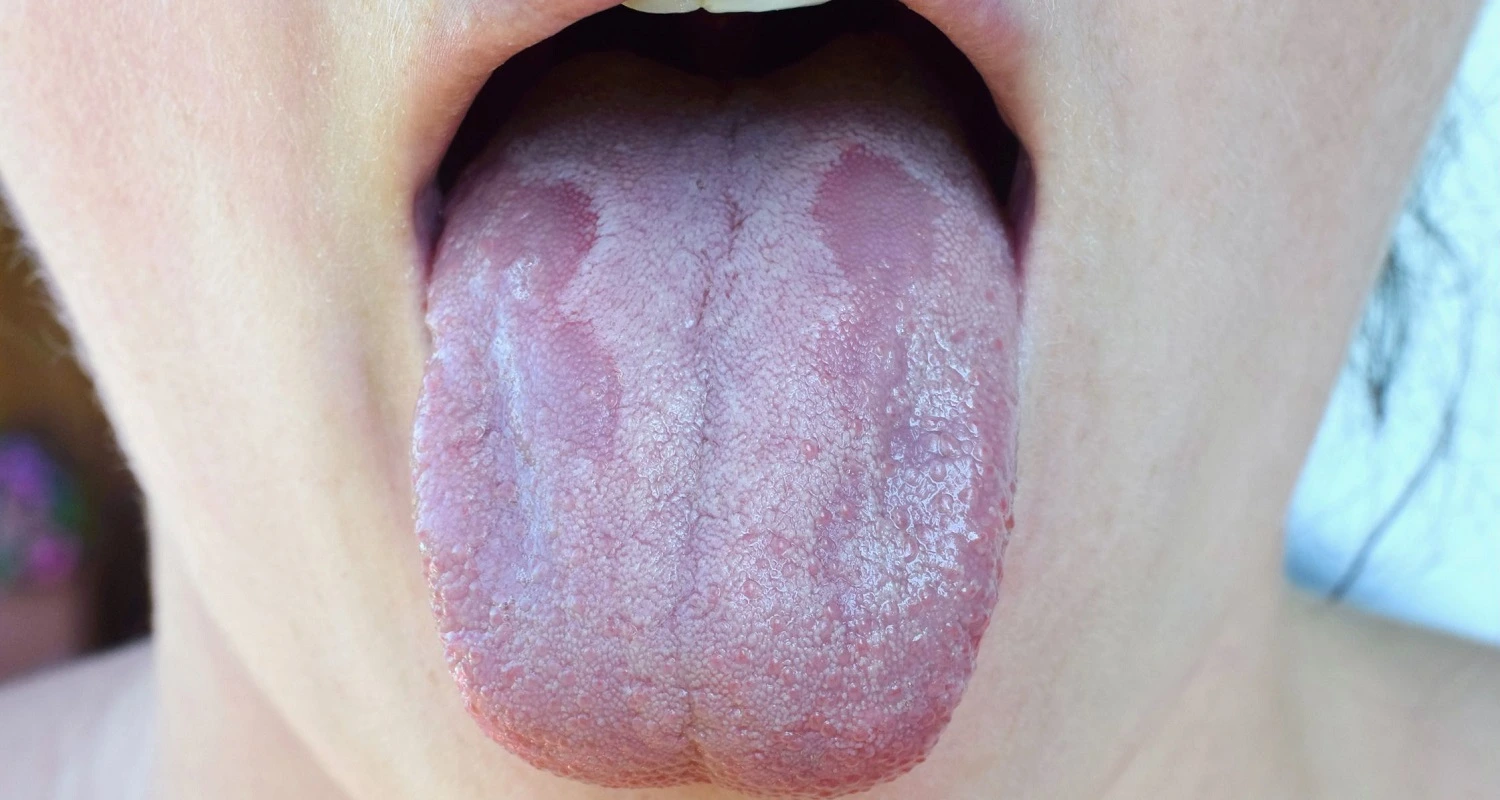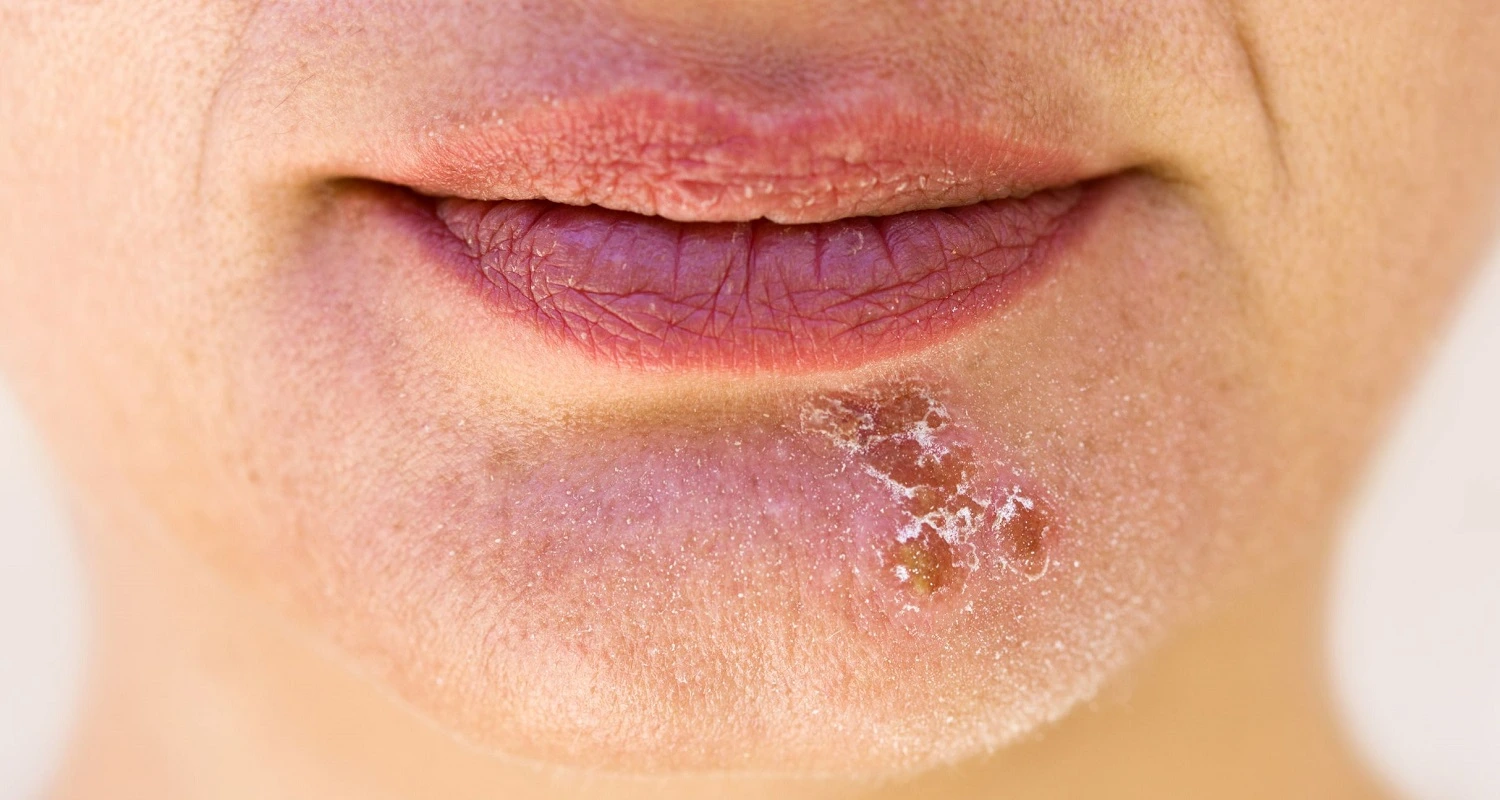Last Updated on: 30th December 2025, 05:37 am
A numb or tingling tongue, though not always perceived, plays an important role in well-being and overall quality of life. However, the important task this organ performs day after day can go unnoticed at times. On some occasions, a numb or tingling tongue occurs.
What Causes Numb or Tingling Tongue?
The tongue serves to ensure there is a proper intake of food and to speak understandably. If at any time you cannot assume these functions, you are faced with an annoying, uncomfortable, and sometimes painful situation.
The sensation of tingling or numbness in the tongue is not a disease in itself. It is the consequence of another health condition, although in most cases it is not serious. It disappears over time and does not require treatment.
This article shares information regarding the different health conditions or scenarios that can trigger a feeling of numbness or tingling and those cases requiring more attention.
1. Oral Allergy
In some cases, an oral allergy syndrome occurs when a person sensitive to pollen consumes nuts, fruits, or raw vegetables.
The immune system reacts with the protein in some foods as if they were pollen proteins, a process known as a “cross-reaction”. When these foods come into contact with the mouth and throat of a person with hypersensitivity to pollen, the following symptoms quickly appear:
• Tingling or itching in the mouth, tongue, and throat. This symptom is the most frequent.
• Nuisance in the throat
• Hoarseness
• Red lips, itchy nose, and ears
In the case of an allergic reaction to food, the most common cause is found in the following:
• Fruits: apricots, cherries, plums, peaches, kiwis, mangos, apples, melons, pears, and grapes.
• Nuts: almonds, hazelnuts, peanuts, walnuts, and pistachios.
• Grains: lentils and beans
• Vegetables: celery, fennel, parsley, green pepper, tomatoes.
• Eggs
• Milk.
• Fish and seafood
• Wheat
• Soya
It should be taken into account that not all people who are allergic to pollen have an oral allergy. In addition, a person who has an allergy to certain foods may not have symptoms with the other foods in the same group.
2. Low Blood Sugar
Hypoglycemia occurs as a result of a low blood sugar (glucose) level and can cause a tingling or numb sensation on the tongue, face, or mouth. This disappears when glucose levels recover.
3. Candidiasis Oral
The candida fungus is present in the mouth, throat, and digestive tract. If the fungus grows excessively, it causes an infection that occurs most often in newborns and immunocompromised people.
When the fungus registers an excessive growth in the mouth, oral candidiasis occurs, manifested as a condition that generates painful yellow or white spots on the tongue and inside the mouth. On some occasions, numbness of the tongue is felt.
4. Multiple Sclerosis (MS)
MS is an autoimmune disease that affects the central nervous system (brain and spinal cord). It occurs due to damage to the covering that surrounds and protects neurons (myelin), a condition that decreases or impedes nerve impulses.
MS causes general numbness, which can reach the tongue. This situation disappears on its own and is usually repeated later. That is, it has an intermittent cycle. Multiple sclerosis can also trigger the gag reflex. If you’re interested in learning how to get rid of the gag reflex, you can check here.
5. Primary Raynaud’s Phenomenon
This disorder affects the flow of blood in the hands and feet, but sometimes the effects reach the tongue and lips.
Intense cold or stress causes the veins and arteries that supply the tongue to narrow, reducing blood flow and causing a change in the color of the tongue, giving it a pale appearance.
During such an episode, it is possible to experience – for a short time – tingling in the tongue, a sensation that may recur.
Primary Raynaud causes discomfort but is not dangerous nor a sign of a health problem that requires further attention. With a hot drink and some relaxation time, it gets better.
Secondary Raynaud presents very similar symptoms. It is often linked to health conditions related to the immune system, such as lupus, rheumatoid arthritis, and scleroderma.
If temporary changes in the color of the tongue are noticed, a doctor should be consulted to make the corresponding diagnosis.
6. Hypocalcemia
Another health condition that can cause tingling in the tongue is a significant reduction of calcium in the blood, hypocalcemia, is a health condition that presents other symptoms such as muscle spasms, cramps, tingling in the feet and fingers, and dizziness.
7. Stroke
Tingling and numbness of the tongue may be related to a transient ischemic attack (TIA), also known as a microstroke or stroke.
TIAs last a few minutes, but their after-effects are serious and require consultation with a health professional.
If, in addition to the tingling tongue, you experience any of the following symptoms, seek medical attention as soon as possible:
• Facial drooping, also called Bell’s palsy
• Confusion
• Weakness or numbness of the face, one side of the body, one arm, or one leg
• Difficulty speaking and/or understanding
• Severe headache
• Dizziness
• Loss of balance
• Vision loss
8. Migraines
A frequent effect that derives from intense headaches, known as migraines is the sensation of numbness and tingling in the tongue and other areas of the body. Migraine manifests other symptoms such as visual problems, sensitivity to light, and nausea.
9. Allergic Reaction to Medications
There is another possible scenario that causes the sensation of tingling or numbness. The drugs that trigger this reaction are certain antibiotics. These can cause itching and tingling of the tongue.
If any symptoms occur after starting treatment with medication, it is pertinent to consult the situation with the health professional who accompanies the procedure.
10. Burning Mouth Syndrome
This condition causes a burning and tingling sensation in the tongue. The pain can be present for months or years, even though the mouth does not show visible signs.
Burning mouth syndrome can be triggered by different circumstances:
• Dry mouth (dry mouth).
• Nutritional deficiencies
• Diabetes
• Thyroid problems
• Allergic reactions to dental products or food
• Acid reflux
Treatment depends upon the person’s medical history and the progress of the condition at the time of diagnosis.
11. Neck and Tongue Syndrome
In this scenario, there is a pain in the neck and a tingling sensation in the middle of the tongue. It is frequently the consequence of an alteration of the cervical spine. The discomfort in the tongue appears at any time and is short-lived.
Other conditions that favor the condition
• Abuse of mouthwash use.
• Nutrient and mineral deficiency. Low levels of vitamins B-12 and B-9 or minerals such as calcium, phosphorus, iron, and zinc cause tingling in the tongue
• Herpes labial. It occurs on the outside of the mouth, but it can affect the tongue, causing pain and a tingling sensation.
• Arterial hypertension. If it is very high, it can generate a sensation of numbness in the tongue
• Bell’s palsy (facial paralysis) produces numbness of the tongue
• Menopause. The hormonal rearrangement that comes with this stage of life for women produces tingling of the tongue
• Burns. Eating something too hot can burn your tongue and make that part feel numb
• Tobacco and psychoactive substances. Excessive consumption leads to numbness and tingling of the tongue
If the tingling or numbness of the tongue does not go away and is accompanied by other symptoms such as numbness in other parts of the body, facial paralysis, allergic reactions that do not subside, headache, or difficulty speaking, among others, it is necessary to consult with a doctor to prescribe the pertinent treatment according to the diagnosis, so the patient can recover their previous good health.
Frequently Asked Questions
What is tongue numbness?
Tongue numbness is a sensation of tingling or lack of feeling in the tongue, often due to an underlying health condition. It is not a disease itself but a symptom.
Why does my tongue feel numb and tingly?
Tongue numbness and tingling can result from various factors, including oral allergies, low blood sugar, oral candidiasis, multiple sclerosis, Raynaud’s phenomenon, hypocalcemia, stroke, migraines, allergic reactions to medications, burning mouth syndrome, and neck and tongue syndrome.
Can allergies cause a numb tongue?
Yes, oral allergy syndrome can cause numbness or tingling in the tongue when a person sensitive to pollen consumes certain nuts, fruits, or raw vegetables, leading to a cross-reaction with the immune system.
Can nerve damage cause a numb tongue?
Yes, conditions such as multiple sclerosis and stroke, which involve nerve damage, can cause numbness in the tongue.
What other conditions can cause numbness in the tongue?
Other conditions that can cause tongue numbness include low blood sugar (hypoglycemia), oral candidiasis, primary and secondary Raynaud’s phenomenon, hypocalcemia, migraines, allergic reactions to medications, burning mouth syndrome, neck and tongue syndrome, nutritional deficiencies, herpes labialis, high blood pressure, Bell’s palsy, menopause, burns from hot food, and excessive use of tobacco and psychoactive substances.
Share:
References
1. Berry, Jennifer (October 15, 2017) Why does my tongue hurt? / https://www.medicalnewstoday.com/articles/320275
2. Buff, Sheila (September 18, 2018)What Causes a Tingling Tongue? / https://www.healthline.com/health/tingling-tongue
3. Kidshealth (May 2022).Oral allergy syndrome / https://kidshealth.org/es/parents/oas-sydrome.html#:~:text=%C2%BFCu%C3%A1les%20son%20los%20signos%20y,molestias%20en%20la %20throat
4. Salamon, Maureen (April 29, 2021)Reasons Your Tongue Might Tingle / https://www.webmd.com/a-to-z-guides/tingling-tongue-causes
5. Sánchez, Edith (June 14, 2022). whatNumb tongue? Look at these 18 possible causes / https://mejorconsalud.as.com/lengua-adormecida-posibles-causas/
6. Tumedico.es (October 31, 2017)Sleepy tongue: all possible causes / https://www.tumedico.es/articulos/lengua-dormida-todas-las-causas-posibles
-
Nayibe Cubillos M. [Author]
Pharmaceutical Chemestry |Pharmaceutical Process Management | Pharmaceutical Care | Pharmaceutical Services Audit | Pharmaceutical Services Process Consulting | Content Project Manager | SEO Knowledge | Content Writer | Leadership | Scrum Master
View all posts
A healthcare writer with a solid background in pharmaceutical chemistry and a thorough understanding of Colombian regulatory processes and comprehensive sector management, she has significant experience coordinating and leading multidisciplina...





















